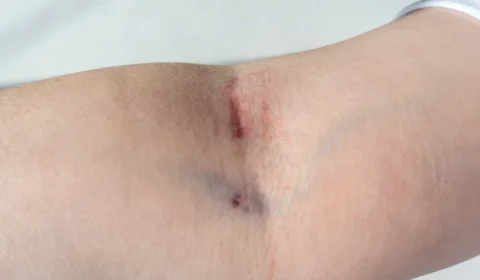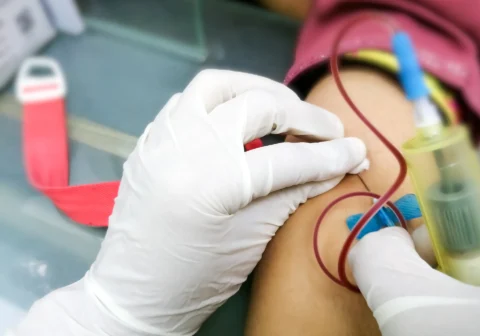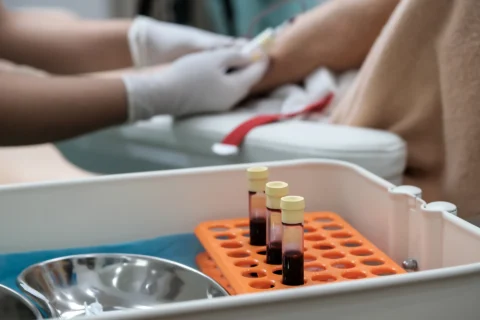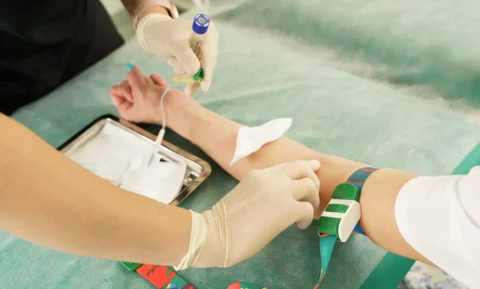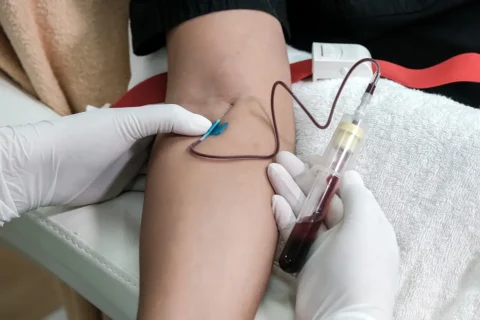Training to become a full-fledged cosmetic surgeon opens up great opportunities for general surgery professionals – plastic surgery training provides an avenue for them to grow their careers and harness the skills they’ve learned from their residency program. Like many specialties, you will find similarities and stark differences between this fellowship program from other residency training courses.
So what should you know about your aesthetic surgery training? Cosmetic surgery training is comprehensive training for surgeons who have already finished their general surgery training. This specialization involves training on broad strands of facial aesthetic surgery, such as facelift, rhinoplasty, endoscopic brow lift, craniofacial surgery, and skin resurfacing treatments. How long this fellowship program will run depends on the program and the pace of the student.
What’s Aesthetic Surgery Training?
Aesthetic surgery training is a specialization program for surgeons who have fulfilled their general surgery training. This fellowship program involves comprehensive training in different aesthetic surgery procedures with a major focus on the three-dimensional angles of facial anatomy. These include skin resurfacing solutions, rhinoplasty, craniofacial surgery, blepharoplasty, facelift, and endoscopic brow lift.
Aside from facial cosmetic surgery, this aesthetic fellowship will also cover other procedures, like body contouring solutions, reconstructive surgery, breast surgery, and lipo-sculpting techniques. Aspiring fellows may expect to work side by side with experienced cosmetic surgeons to receive practical training.
How Long It Takes
How long your aesthetic fellowship lasts depends on your performance, prerogative on how fast you set up your pace, and the program you’ll take. But mostly, a cosmetic surgery fellowship lasts for a year where you’ll spend 4 days of clinical practice weekly.
Requirements
Those aspiring to become a fellow of cosmetic surgery training must adhere to the requirements set by the institution or training provider. It will also depend on the laws imposed by your state. Most of the prerequisites to receive training involve a board certification as a physician and fulfilling your residency in general surgery.
Plastic surgery is a subspecialty a surgeon may practice by attending a fellowship program, similar to taking programs in neurosurgery or cardiothoracic surgery. This training will tackle more specific concerns and treatments for enhancing and repairing a patient’s appearance.
You may expect to fill out an application at your chosen institution. Some institutions even require a written and oral examination and interview or both. You may also want to check if you need to have a recommendation from your mentors.
Objectives of Training
A cosmetic surgery fellowship aims to equip in-training specialists with in-depth knowledge of problems and solutions concerning the three-dimensional areas of facial anatomy. It also includes lessons on different cosmetic techniques and their effects on the patient.
As a fellow in aesthetic plastic surgery, a resident will also be trained in the techniques of performing different cosmetic surgery procedures. They will also be equipped with body contouring solutions and the practice of performing breast surgery.
Possible Courses in Aesthetic Surgery Training
Plastic surgery residents will have different courses in their cosmetic surgery training. These courses may involve general cosmetic surgery training, principles of cosmetic surgery, training in the body or extremity procedures, breast surgery, dermatologic procedures, and facial cosmetic surgery.
General Cosmetic Surgery Training
Plastic surgery residents may have a background in performing surgical operations from their general surgery training. But once they’ve entered a plastic surgery fellowship, the broad training they’ve had will be narrowed down to their chosen specialty. The training will then focus on mastering the facial anatomy and other cosmetic procedures.
Principles of Cosmetic Surgery
As cosmetic surgeons in training, plastic surgery residents must delve into the principles of cosmetic surgery as they’re starting their specialization. Aesthetic surgery focuses on enhancing the patient’s appearance with the medical tools and techniques developed in the field. The key goals are improving symmetry, aesthetic appeal, and proportion.
Training in Body or Extremities Procedures
Your aesthetic plastic surgery fellowship may focus on facial procedures, but you will still encounter operations on the body or extremities. Because of this, training in performing surgical procedures on the limbs and other body parts will also be included in your program.
Training in Breast Procedures
Breast surgery is one of the most common plastic surgeries done in the industry. As it concerns other important organ systems, like the mammary glands, plastic surgery residents will also receive training and clinical experience from cosmetic surgeries on the breast.
Training in Dermatologic Procedures
A cosmetic surgery fellowship also covers training in dermatologic procedures. This course concerns the skin, nails, hair, mucous membranes, and adjacent tissues, where residents will be trained in its diagnosis and treatments using surgical, cosmetic, and reconstructive techniques. It involves enhancing or repairing the skin tissues.
Facial Cosmetic Surgery Procedures
Plastic surgery residents will also be trained in different aesthetic plastic surgery procedures. They will practice methods and solutions for a variety of cosmetic goals and operations to ensure the patient’s safety and satisfaction. Some popular procedures in facial aesthetic surgery include eyelid surgery, liposuction, nose reshaping, facelift, and tummy tuck surgery.
Other Subspecialty Programs
After plastic surgery residency, a fellow may take a post-graduate subspecialty program. These courses may involve burn surgery, complex gender surgery, craniofacial surgery, and hand and upper extremity. Residents who have finished their general surgery program may also opt for these subspecialty programs.
1. Burn Surgery
Those who have finished plastic surgery residency may also take further studies and practice reconstructive surgery for burn patients. This also involves research on caring for burn injuries. Physicians may also focus on this fellowship program after their general surgery residency.
2. Complex Gender Surgery
Gender reassignment and other complex surgeries similar to this field may also be a subspecialty of doctors undergoing or finished with their plastic surgery fellowship. These types of procedures can be more complicated because plastic surgeons need to consider the functions of the patients’ genitals and other organs.
Training will include metoidioplasty, microvascular phalloplasty, masculinizing & feminizing chest surgery, and vaginoplasty. This will also concern facial gender surgery, which includes rhinoplasty, jaw contouring, frontal sinus setback, and tracheal shave treatment.
3. Microsurgery
This subspecialty involves repairing tissues requiring intricacy using specialized instruments and operating microscopes. Some of the treatment areas of this surgical discipline include nerves and blood vessels that are only a few millimeters in diameter. This field has contributed to restoring the function of patients with cancer, trauma, and other congenital conditions.
Learn More About the Aesthetic Training Packages in FACE Med Store
Aesthetic fellowship program trains surgeons to specialize in cosmetic plastic surgery. Physicians who have fulfilled their residency in general surgery may take a fellowship program to become cosmetic surgeons. The requirements vary per state and institution, but most programs require fellows to be board-certified as a doctor. They must also have finished their residency, filled out an application, attended the needed interviews, or passed the exams.
FACE Med Store has been a trusted supplier of high-quality medical and cosmetic supplies. We also provide aesthetic training packages mentored by the best specialists in the industry. If you want to learn more about our educational packages, you may visit our website and browse our catalog or leave us a call.
